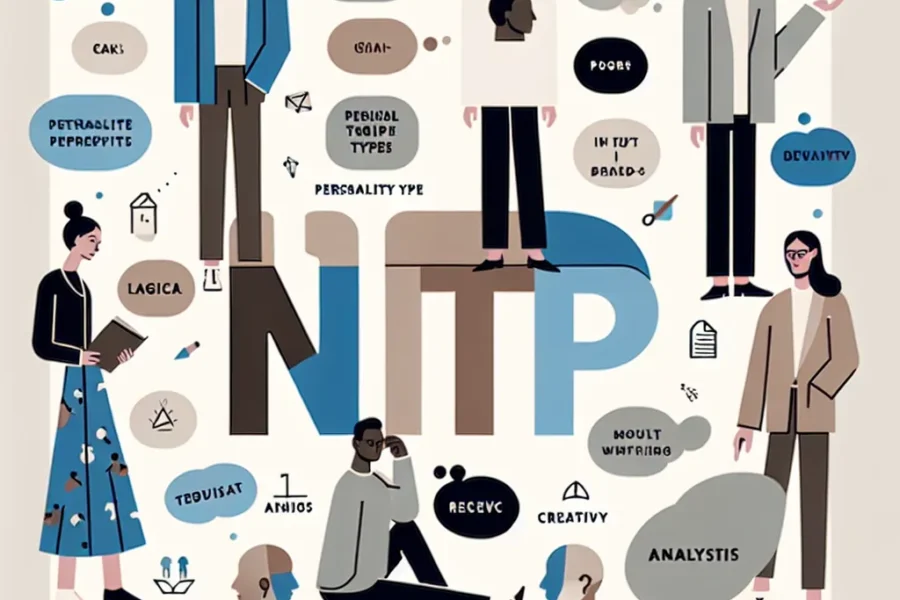ENTJ (Extraverted, Intuitive, Thinking, Judging) personality types, often referred to as the “Commanders” or “Chief Executives,” are known for their strong leadership skills, strategic mindset, and assertive nature. As one of the 16 personality types identified by the Myers-Briggs Type Indicator (MBTI), ENTJs embody a unique combination of traits that allow them to excel in management roles, entrepreneurship, and any arena where they can take charge and make an impact.
Characteristic Traits of ENTJs
ENTJs are natural-born leaders who thrive in positions of authority and responsibility. They are confident, charismatic, and articulate, which helps them gain support and cooperation from others. Their extroverted nature means they enjoy interacting with a wide circle of friends, colleagues, and acquaintances.
These individuals possess an intuitive sense of the world around them. They excel at identifying patterns and making connections between ideas, which allows them to come up with innovative solutions to complex problems. ENTJs typically enjoy tackling challenges and are not deterred by obstacles, viewing them instead as opportunities to learn and grow.
The thinking aspect of their personality means ENTJs are analytical and logical. They prioritize objectivity and are adept at removing personal emotions from decision-making processes. This can make them particularly effective in business and strategic planning.
As judgers, ENTJs appreciate structure and order. They like to plan ahead and are very organized, often with a clear long-term vision of what they want to achieve. They tend to be decisive and are comfortable taking the lead to ensure that plans are executed efficiently.
ENTJs in the Workplace
In work environments, ENTJs are driven and ambitious, often rising to positions of leadership quickly. They are assertive and have no problem delegating tasks and giving clear directions to their team members. Their strategic approach allows them to see the bigger picture and keep their eyes on the end goal, making them excellent project managers and business executives.
However, ENTJs may sometimes come across as too authoritative or confrontational. Their direct communication style and high standards can be intimidating for more sensitive personality types. ENTJs must be mindful to balance their assertiveness with empathy and consideration for others’ feelings to maintain harmonious working relationships.
ENTJs and Relationships
When it comes to personal relationships, ENTJs apply the same level of dedication and commitment as they do in their professional lives. They seek partners who are independent, intelligent, and able to stand on their own. Strong mutual respect is vital for an ENTJ’s relationship to thrive, and they are often attracted to individuals who share their values and ambitions.
As partners, ENTJs are supportive and fairly direct about their expectations. They value honest communication and will typically address any issues head-on. Their natural leadership often extends to their relationships, where they may naturally take on the role of planner and initiator of activities.
Parenting as an ENTJ
ENTJ parents are usually very involved and want to pass down their values of hard work, integrity, and perseverance to their children. They will likely encourage their kids to be independent and self-sufficient from an early age. They enjoy teaching and often take on the role of a mentor to their children, setting clear goals and expectations.
However, ENTJ parents need to remember that not all children will meet their high expectations all the time. They must strive to show patience and understanding, fostering an environment where their children feel comfortable expressing their feelings and thoughts.
ENTJs and Personal Growth
Personal growth is very important to ENTJs. They have a strong desire for self-improvement and are constantly seeking new knowledge and experiences. They are open to feedback and criticism, as they view these as tools for growth. ENTJs do well with constructive feedback that is expressed in a logical and unemotional way.
One area for growth for ENTJs is to develop their emotional intelligence. By learning to recognize and value the emotional contributions of others, ENTJs can enhance their interpersonal skills and build stronger relationships both personally and professionally.
ENTJ Strengths and Weaknesses
ENTJs have several strengths, including their ability to organize, their strategic thinking skills, and their confidence in leadership roles. They are often excellent communicators and are able to motivate others toward a common goal. Their determination and resilience in the face of challenges are also significant assets.
On the other hand, ENTJs may struggle with sensitivity and patience. They can be perceived as stubborn or inflexible, particularly when they feel that their authority is being challenged. ENTJs can benefit from practicing active listening and considering the emotional aspects of situations, not just the logical ones.
Conclusion
ENTJ personality types are dynamic, powerful individuals who are natural leaders. They excel in environments where they can apply their strategic thinking and take direct action. By understanding the unique strengths and potential areas for development of ENTJs, people with this personality type can continue to grow and succeed in all aspects of life. Whether in the realm of business, relationships, or personal development, ENTJs have the potential to wield a significant impact and achieve great things.



Leave a Comment